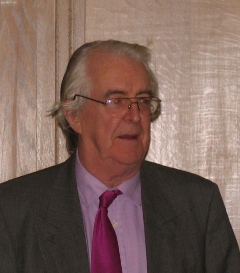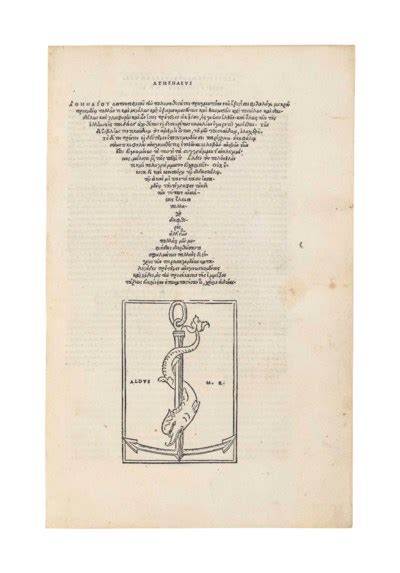Top 1200 Moral Goodness Quotes & Sayings - Page 3
Explore popular Moral Goodness quotes.
Last updated on April 21, 2025.
If an instrument similar to a geiger-counter could be invented that counted moral judgements instead, we would learn to duck as people became increasingly 'moral', since lethal force is usually imminent. So far from moral fervour being an alternative to force, it is frequently the overture, the accompaniment and the memorial to it.
Spare me therefore, your good intentions, your inner sensitivities, your unarticulated and unexpressed love. And spare me also these tedious psycho-historians which, by exposing the goodness inside the bad man, and the evil in the good-invariably establish a vulgar and perverse egalitarianism, as if the arrangement of what is outside and what inside makes no moral difference.
All are agreed that the various moral qualities are in a sense bestowed by nature: we are just, and capable of temperance, and brave, and possessed of the other virtues from the moment of our birth. But nevertheless we expect to find that true goodness is something different, and that the virtues in the true sense come to belong to us in another way. For even children and wild animals possess the natural dispositions, yet without Intelligence these may manifestly be harmful.
I'm not saying that atheists can't act morally or have moral knowledge. But when I ascribe virtue to an atheist, it's as a theist who sees the atheist as conforming to objective moral values. The atheist, by contrast, has no such basis for morality. And yet all moral judgments require a basis for morality, some standard of right and wrong.
Enthusiasm is always connected with the senses, whatever be the object that excites it. The true strength of virtue is serenity of mind, combined with a deliberate and steadfast determination to execute her laws. That is the healthful condition of the moral life; on the other hand, enthusiasm, even when excited by representations of goodness, is a brilliant but feverish glow which leaves only exhaustion and languor behind.
The United States of America is a flawed society. As it comprises human beings, it must be flawed. But in terms of the goodness achieved inside its borders and spread elsewhere in the world, it has been the finest country that ever existed. If you were to measure the moral gulf between America and those who despise it, the divide would have to be calculated in light-years.
The moral nature of man is more sacred in my eyes than his intellectual nature. I know they cannot be divorced - that without intelligence we should be brutes - but it is the tendency of our gaping, wondering dispositions to give pre-eminence to those faculties which most astonish us. Strength of character seldom, if ever, astonishes; goodness, lovingness, and quiet self-sacrifice, are worth all the talents in the world.
We have a lot of goodness in this country. And we should promote it, but never through the barrel of a gun. We should do it by setting good standards, motivating people and have them want to emulate us. But you can't enforce our goodness, like the neocons preach, with an armed force. It doesn't work.
God doesn't help. I think that's a knockdown argument. I think that it really shows that whatever moral knowledge we have and whatever moral progress we make in our knowledge or whatever progress we make in our moral knowledge is not coming really from religion. It's coming from the very hard work really of moral philosophy, of trying to ground our moral reasonings.
Legality alone is no guide for a moral people. There are many things in this world that have been, or are, legal but clearly immoral. Slavery was legal. Did that make it moral? South Africa’s apartheid, Nazi persecution of Jews, and Stalinist and Maoist purges were all legal, but did that make them moral?
Human beings have rights, because they are moral beings: the rights of all men grow out of their moral nature; and as all men havethe same moral nature, they have essentially the same rights. These rights may be wrested from the slave, but they cannot be alienated: his title to himself is as perfect now, as is that of Lyman Beecher: it is stamped on his moral being, and is, like it, imperishable.
Scandal is great entertainment because it allows people to feel contempt, a moral emotion that gives feelings of moral superiority while asking nothing in return. With contempt you don't need to right the wrong (as with anger) or flee the scene (as with fear or disgust). And the best of all, contempt is made to share. Stories about the moral failings of others are among the most common kinds of gossip, they are a stable of talk radio, and they offer a ready way for people to show that they share a common moral orientation.
Why is it immoral for you to desire, but moral for others to do so? Why is it immoral to produce a value and keep it, but moral to give it away? And if it is not moral for you to keep a value, why is it moral for others to accept it? If you are selfless and virtuous when you give it, are they not selfish and vicious when they take it?
Strictly speaking, there are no such things as good and bad impulses. Think...of a piano. It has not got two kinds of notes on it, the 'right' notes and the 'wrong' ones. Every single note is right at one time and wrong at another. The Moral Law is not any one instinct or set of instincts: it is something which makes a kind of tune (the tune we call goodness or right conduct) by directing the instincts.
The foundation of leadership is your own moral compass. I think the best quality leaders really know where their moral compass is. They get it out when they are making decisions. It's their guide. But not only do you have to have a moral compass and take it out of your pocket, it has to have a true north.
Political realism is aware of the moral significance of political action. It is also aware of the ineluctable tension between the moral command and the requirements of successful political action. And it is unwilling to gloss over and obliterate that tension and thus to obfuscate both the moral and the political issue by making it appear as though the stark facts of politics were morally more satisfying than they actually are, and the moral law less exacting than it actually is.
God has no needs. Human love, as Plato teaches us, is the child of Poverty – of want or lack; it is caused by a real or supposed goal in its beloved which the lover needs and desires. But God's love, far from being caused by goodness in the object, causes all the goodness which the object has, loving it first into existence, and then into real, though derivative, lovability. God is Goodness. He can give good, but cannot need or get it. In that sense , His love is, as it were, bottomlessly selfless by very definition; it has everything to give, and nothing to receive.
I have never seen one who really loves goodness or one who really hates wickedness. One who really loves goodness will not place anything above it. One who really hates wickedness will practice goodness in such a way that wickedness will have no chance to get at him. Is there anyone who has devoted his whole strength to doing good for even as long as a single day? I have not seen anyone give up such an attempt because he had not the strength to go on. Perhaps there is such a case, but I have never seen it.
There can be, therefore, no true education without moral culture, and no true moral culture without Christianity. The very power of the teacher in the school-room is either moral or it is a degrading force. But he can show the child no other moral basis for it than the Bible. Hence my argument is as perfect as clear. The teacher must be Christian. But the American Commonwealth has promised to have no religious character. Then it cannot be teacher.
For the Humanist, . . . head and heart . . . must function together. . . . The constitution of the Phillips Exeter Academy reads: 'Though goodness without knowledge . . . is weak and feeble, yet knowledge without goodness is dangerous. . . . Both united form the noblest character and lay the surest foundation of usefulness to mankind.'
Face your deficiencies and acknowledge them; but do not let them master you. Let them teach you patience, sweetness, insight. True education combines intellect, beauty, goodness, and the greatest of these is goodness. When we do the best that we can, we never know what miracle is wrought in our life, or in the life of another.
We want to believe in the essential, unchanging goodness of people, in their power to resist external pressures, in their rational appraisal and then rejection of situational temptations. We invest human nature with God-like qualities, with moral and rational faculties that make us both just and wise. We simplify the complexity of human experience by erecting a seemingly impermeable boundary between Good and Evil.
Ultimately the case for shunning animal flesh does not rest on what the Buddha allegedly said or didn't say. What is does rest on is our innate moral goodness, compassion, and pity which, when liberated, lead us to value all forms of life. It is obvious, then, that willfully to take life, or through the eating of meat indirectly to cause others to kill, runs counter to the deepest instincts of human beings.
God has great plans for you, directed towards helping you do what Jesus Christ did when He was on earth. This requires you do resist temptation vigorously, with special confidence in the assistance of His Divine Goodness. Courage then, Monsieur. Be faithful to Him, and the Divine Goodness will be favorable to you.




















































